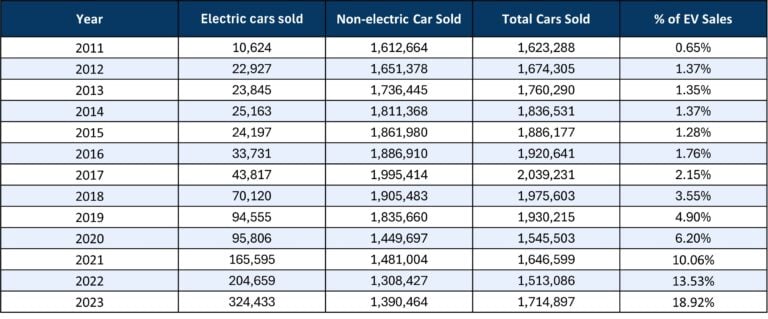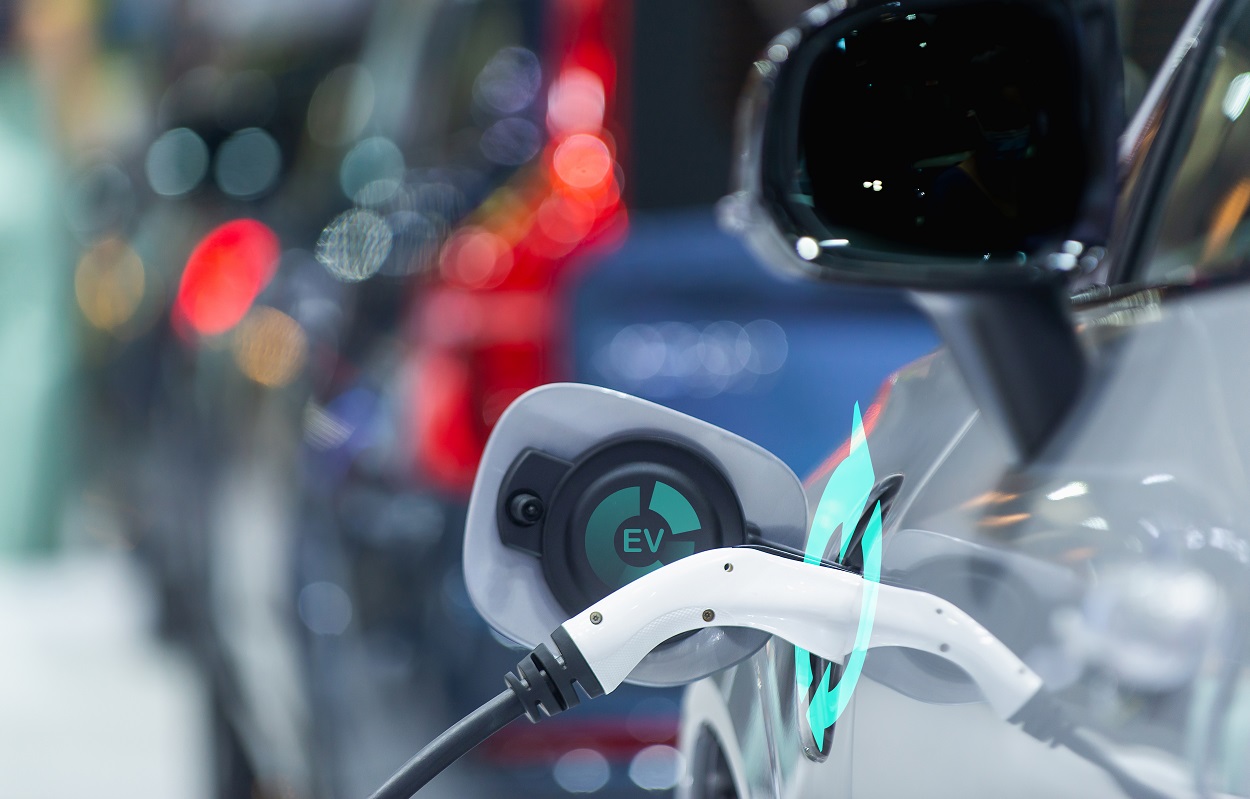Canadians' EV Interest Dips For Third Consecutive Year

Table of Contents
High Purchase Prices and Affordability Concerns
The Cost Barrier to EV Ownership
The significant price difference between electric vehicles and comparable gasoline-powered vehicles remains a major obstacle to widespread Canadian EV adoption. The high upfront cost of EVs presents a substantial barrier for many potential buyers, even with government incentives.
- Price Comparisons: A recent study showed that the average price of a new EV in Ontario is approximately $60,000, significantly higher than the average price of a comparable gasoline-powered car, which sits around $40,000. This gap is even wider in other provinces like British Columbia and Alberta.
- Limited Incentive Effectiveness: While the Canadian government offers various rebates and incentives for EV purchases, these often fall short of significantly offsetting the high initial cost. The current incentives are simply not enough to make EVs financially competitive for many Canadians.
- Inflation and Interest Rates: The current economic climate, characterized by high inflation and rising interest rates, further exacerbates the affordability issue. Higher financing costs make even subsidized EVs less accessible to a larger segment of the Canadian population. This is especially true for those relying on financing to purchase a vehicle.
Range Anxiety and Charging Infrastructure Limitations
Concerns about EV Range and Charging Availability
Range anxiety – the fear of running out of battery charge – remains a considerable deterrent for many Canadians considering an EV. Coupled with the uneven distribution of charging stations across the country, this concern is particularly acute outside of major urban centers.
- Range and Charging Density: While EV ranges are improving, many models still offer a limited range compared to gasoline cars. Furthermore, the density of publicly accessible charging stations, especially fast-charging stations, remains low in many rural and remote areas of Canada.
- Long-Distance Travel Challenges: Long-distance travel presents a significant challenge for EV owners, requiring careful planning and potentially lengthy charging stops. This is a considerable barrier for those who frequently travel outside of urban areas.
- Charging Station Reliability: Inconsistent reliability of charging stations, including issues with malfunctioning chargers or limited availability due to high demand, adds another layer of concern for potential EV buyers.
Lack of Public Awareness and Education
Misconceptions and Uncertainty Surrounding EV Technology
A significant knowledge gap persists among Canadians concerning EV technology, maintenance requirements, and long-term costs. Misconceptions and uncertainty surrounding these aspects hinder the widespread adoption of electric vehicles.
- Common Misconceptions: Many Canadians harbor misconceptions about EV charging times, battery lifespan, and overall maintenance costs. Addressing these misconceptions through targeted educational campaigns is crucial.
- Need for Public Awareness: Increased public awareness campaigns are needed to educate Canadians about the environmental benefits, long-term cost savings, and technological advancements in the EV sector.
- Role of Dealerships: Automotive dealerships play a critical role in educating potential buyers about EVs, addressing concerns, and providing accurate information regarding purchase options and maintenance.
Government Policy and its Impact
Analyzing the Effectiveness of Current EV Policies
The effectiveness of current government policies and incentives in fostering Canadian EV adoption needs careful scrutiny. While incentives exist, their impact may be limited without addressing other key challenges.
- Effectiveness of Current Incentives: A thorough analysis of the federal and provincial EV incentive programs is necessary to evaluate their overall impact and effectiveness in driving market demand.
- Policy Improvements: Further policy adjustments may be required to make EVs more accessible and appealing to a broader range of Canadians. This could include expanding the range of eligible vehicles, increasing the amount of rebates, or streamlining the application process.
- International Comparisons: Comparing Canada's EV policies with those of other countries that have achieved higher rates of EV adoption can offer valuable insights and inform future policy decisions.
Conclusion
The decline in Canadian EV interest is a multi-faceted issue stemming from high purchase prices, range anxiety, limited charging infrastructure, and a lack of public awareness. While government incentives exist, they are currently insufficient to overcome the significant hurdles preventing widespread EV adoption. To truly accelerate the transition to electric mobility in Canada, addressing these challenges is paramount. By improving affordability, expanding charging infrastructure, promoting public education, and refining government policies, Canada can foster a more vibrant and sustainable EV market. Further research into government incentives, available EV models, and charging infrastructure in your region is recommended to inform your decisions regarding Canadian EV adoption. The future of EVs in Canada relies on overcoming these hurdles and embracing a greener future. Understanding the current challenges is the first step toward a successful Canadian EV market outlook.

Featured Posts
-
 Canadian Tesla Prices Surge Pre Tariff Inventory Liquidation
Apr 27, 2025
Canadian Tesla Prices Surge Pre Tariff Inventory Liquidation
Apr 27, 2025 -
 Russia Ukraine War Ukraine Accused In Generals Death Near Moscow
Apr 27, 2025
Russia Ukraine War Ukraine Accused In Generals Death Near Moscow
Apr 27, 2025 -
 Bencic Triumphs First Wta Tournament Win Since Becoming A Mother
Apr 27, 2025
Bencic Triumphs First Wta Tournament Win Since Becoming A Mother
Apr 27, 2025 -
 Bencics Stylish Abu Dhabi Open Victory
Apr 27, 2025
Bencics Stylish Abu Dhabi Open Victory
Apr 27, 2025 -
 Dealers Intensify Fight Against Ev Sales Requirements
Apr 27, 2025
Dealers Intensify Fight Against Ev Sales Requirements
Apr 27, 2025
